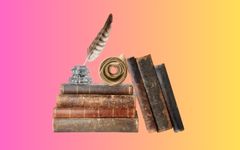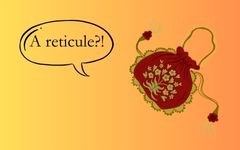What's in a name?

I wrote Crime and Prejudice as a pastiche, but what does that mean? The Oxford English Dictionary defines "pastiche" as “the technique of incorporating distinctive elements of other works or styles in a literary composition”. In my case, the original whose style I wanted to emulate was Jane Austen’s Pride and Prejudice. That isn’t the only work I’ve referenced, however. The stories in Crime and Prejudice are full of allusions to other books and characters. Some of these would have been known to Jane Austen, but others are more recent. I included these allusions because I love following up such clues in the writing of other authors.
One of my favourite writers, Reginald Hill, used many quotations from other writers in his titles: An April Shroud (from Keats’ Ode to Melancholy); Arms and the Women (a play on Virgil’s "Arms and the man" in his epic poem The Aeneid); Pictures of Perfection; and A Cure for All Diseases. “Pictures of perfection” is a quote from a letter by Jane Austen to her niece (March 1817: “pictures of perfection, as you know, make me sick and wicked”), and although the title A Cure for All Diseases is taken from Thomas Browne’s Religio Medici (The Faith of a Physician, officially published in 1643), the content of Hill’s modern crime novel is a delight to Jane Austen fans. I don’t want to give too much away, because I really recommend you read it yourself if you can find a copy, but the action takes place in Sandytown, and there are many missives from the protagonist, Charley, to her sister, Cassie. If you’re still not sure of the Jane Austen connection, try a search for her unfinished novels . . .
I included many references to other works in the stories of Crime and Prejudice. The most obvious is the scandalous book Fanny Hill. I included this because I first came across it in Jane Gardam’s prize-winning 1985 novel Crusoe’s Daughter, where the protagonist finds a copy and reads it avidly, as an eye-opening introduction to sex. I thought the Bennet girls might do the same, so it appears in several chapters, though who first brought it to Longbourn remains a mystery.
On a more serious note, there is debate among Austen scholars as to whether Jane herself read Mary Wollstonecraft's A Vindication of the Rights of Woman (1792), but it was an important book written not long before Pride and Prejudice, and it seems reasonable to think that Jane Austen was familiar with its contents. In fact, Elizabeth Bennet warns Mr Collins, “Do not consider me now as an elegant female intending to plague you, but as a rational creature speaking the truth from her heart.” This echoes Mary Wollstonecraft: “My own sex, I hope, will excuse me, if I treat them like rational creatures, instead of flattering their fascinating graces . . .”
I have used other contemporary references in one of my later chapters: “Moll Flanders caught him on the left foot, and several volumes by A Lady landed on his right.”
Moll Flanders is the colourful heroine of Daniel Defoe’s 1722 novel of the same name, while “A Lady” was the only author information given on Jane Austen’s first published book, Sense and Sensibility.
One more character I refer to in my book was a real person: Anne Lister, also known as Gentleman Jack. She did indeed live at Shibden Hall in the 1800s, as in my story, and I have referred to her because I wanted to include a variety of empowered women.
 Also in the nineteenth century, the title of my additional story The Importance of Being Wickham (there’s a link here and on the front page of my website) is of course based on Oscar Wilde’s witty play The Importance of Being Earnest (1895). His character Lady Bracknell’s immortal line, “A handbag?!” is replaced in Wickham’s story with “A reticule?!” I also borrowed from Lady Bracknell for Mr Bennet’s words in another chapter: “To have one pug was misfortune enough, but to allow three in the house was worse than carelessness.”
Also in the nineteenth century, the title of my additional story The Importance of Being Wickham (there’s a link here and on the front page of my website) is of course based on Oscar Wilde’s witty play The Importance of Being Earnest (1895). His character Lady Bracknell’s immortal line, “A handbag?!” is replaced in Wickham’s story with “A reticule?!” I also borrowed from Lady Bracknell for Mr Bennet’s words in another chapter: “To have one pug was misfortune enough, but to allow three in the house was worse than carelessness.”
In addition, Wickham’s story includes several references to Gilbert and Sullivan’s comic opera H.M.S. Pinafore (1878). These include the character of Buttercup (also known as Mrs. Cripps, in the opera), and the words:
“What, never?” “No, never.” “[What], never?” “Hardly ever.” 
Moving on to the twentieth century, we find Mellors from D. H. Lawrence’s Lady Chatterley’s Lover (1928) in my chapter about Jane Bingley:
Mellors answered the door in his breeches, his hair dishevelled. He looked annoyed at the disturbance.
"Wait there, Constance," he shouted into the interior of his house.
Not all my references are so literary, however. Fans of Helen Fielding’s Bridget Jones films might recognise this exchange between Elizabeth and Fitzwilliam Darcy:
“You are angry,” I said.
He looked at me sternly. “No, I am not angry, Elizabeth. I am merely disappointed.”
Other modern references I use are the (toy) horse’s head in the nefarious Longbottoms’ bed (from the 1972 film The Godfather), and Mr Darcy’s wet shirt, which appears in the BBC 1995 series of Pride and Prejudice. Since this iconic item of clothing is not in the book, but has come to be closely associated with Mr Darcy, I thought it was time to provide an explanation. Then there is the question of a cape and “short drawers outside the breeches . . . as a look suggestive of superior powers”. Even more recent is the quote from Australian Prime Minister Julia Gillard in her famous 2012 speech: “I . . . will not be lectured about sexism and misogyny by this man. Not now, not ever.” I rephrased this for a character in one of my stories – “I will not be dictated to, by you or any one else. Not now, not ever” – but the echo of the words “not now, not ever” will evoke memories for many readers.
I love references like these, because the author makes the reader complicit in their literary world. These little asides recognise that we, as readers, are familiar with a wide range of other work, and it is satisfying for us to share the joke with the author. If we don’t get the allusions, it doesn’t matter – we can still enjoy the story. If we do understand them, however, it makes the work richer, and that's always a bonus.


